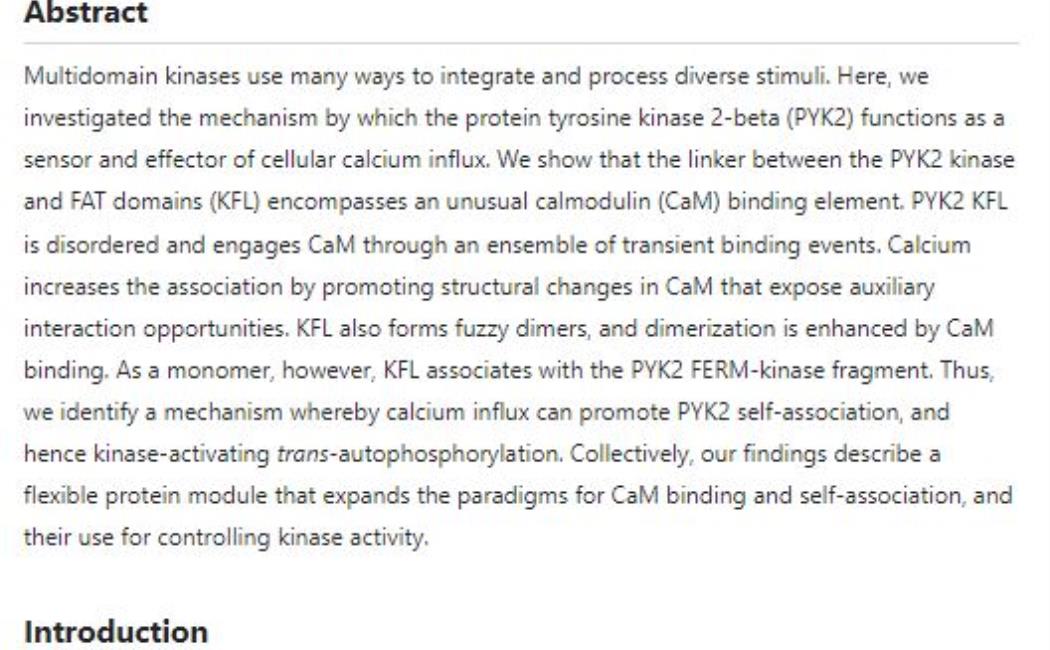
27 October, 2022
In this video Dr. Afaque Momin, a Postdoctoral researcher working with Professor Stefan Arold at the Structural Biology & Engineering Lab (STRUBE) explains the mechanism by which the protein tyrosine kinase 2-beta (PYK2) controls cell movement and survival through its capability to sense cellular calcium levels. His research was recently published in the Nature’s Communications Biology Journal. Dr. Afaque research interest include using physical methods to study biological systems on a molecular level and elucidating the molecular function, regulation, de-regulation, frameworks, and dynamics of proteins. He combines computational methods such as molecular dynamics and bioinformatics, with experimental methods like biophysics, X-ray crystallography, and nuclear magnetic resonance. In this video he explains how PYK2 senses calcium indirectly, through binding to another protein, named calmodulin. Understanding its activation can provide essential clues to tailor therapy. These findings now provide a stepping stone to block PYK2 activation in cancer or promote it in neurological dysfunctions.